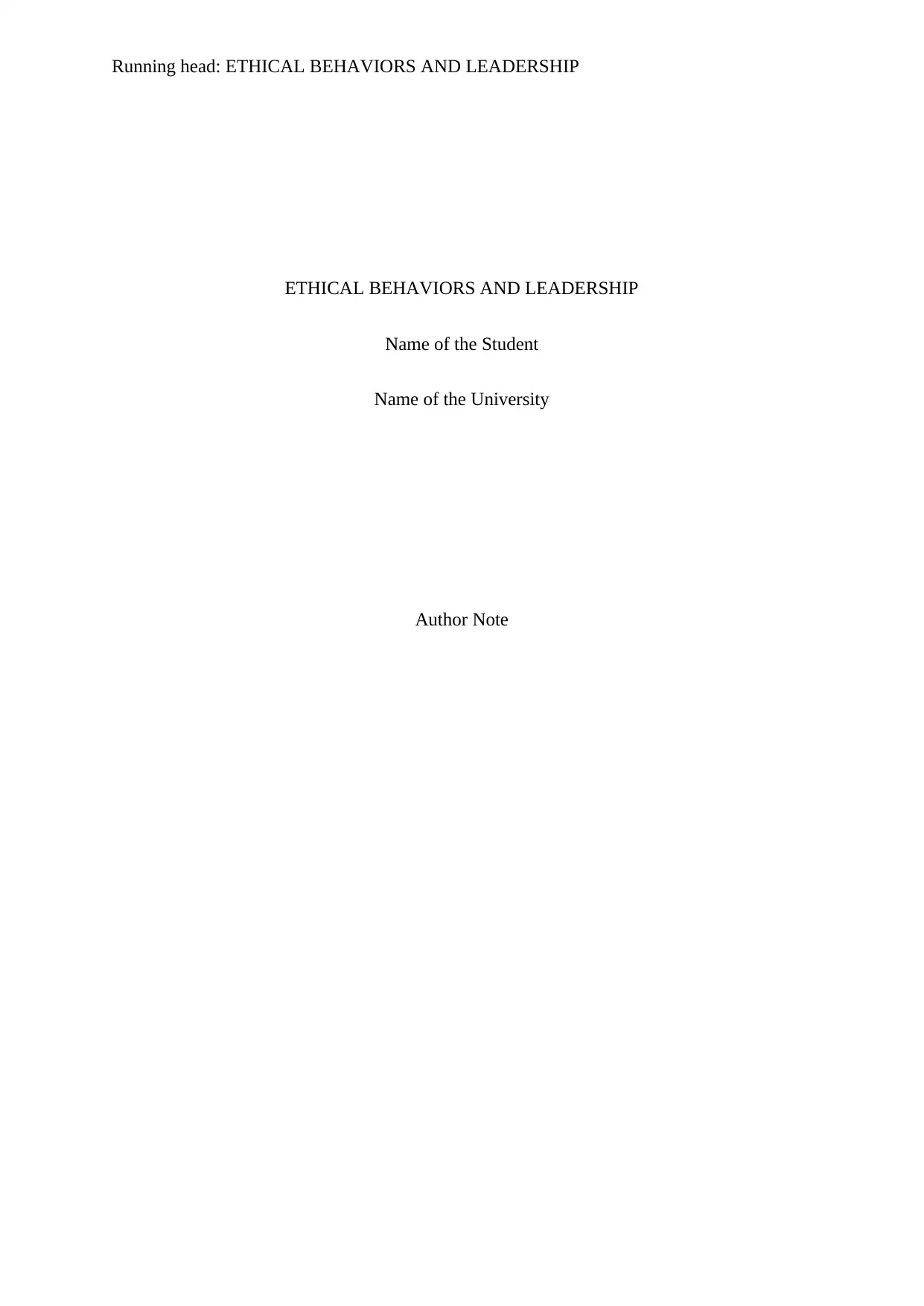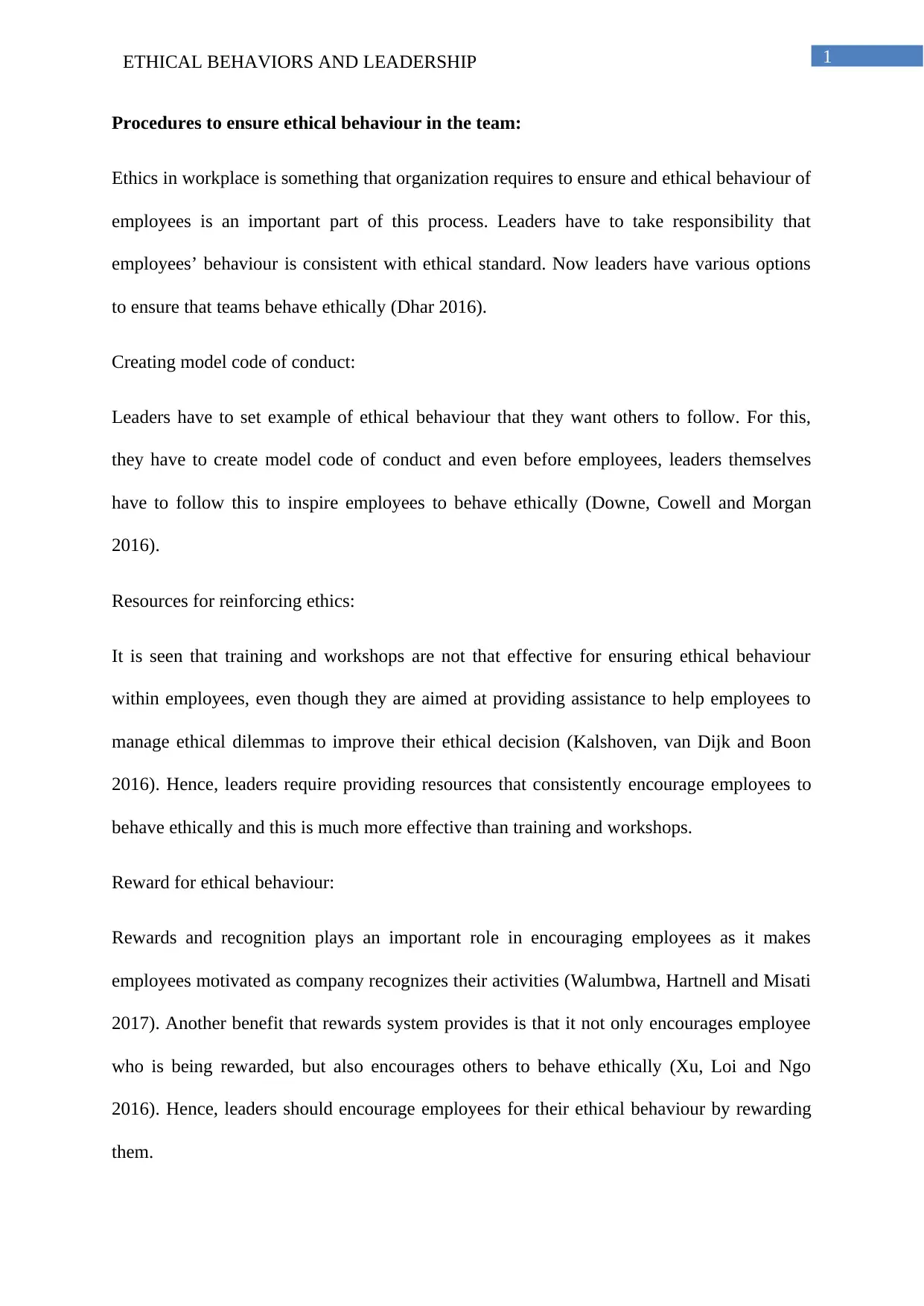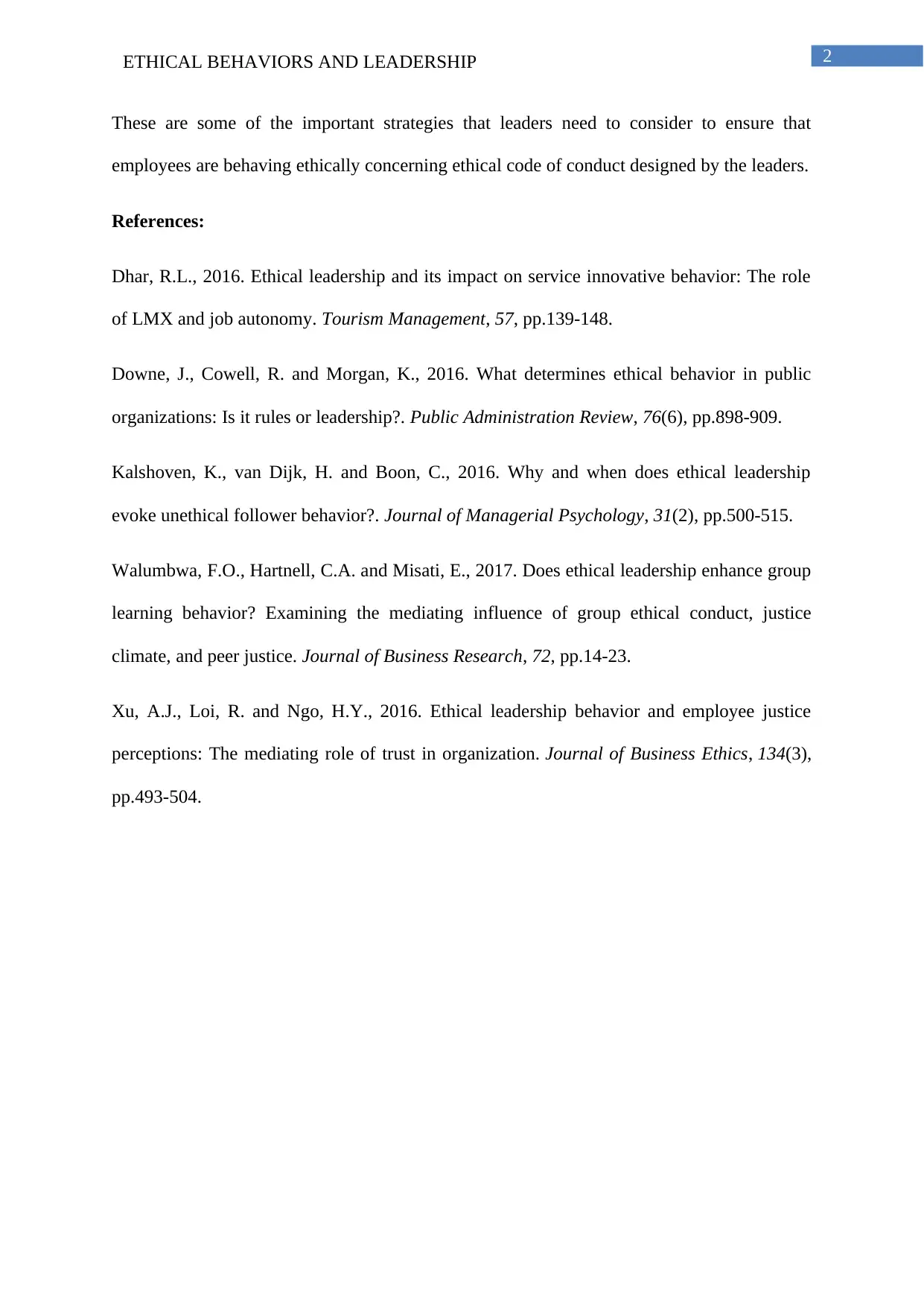Leadership and Ethical Behaviors: Strategies for the Workplace
VerifiedAdded on 2023/03/20
|3
|542
|45
Report
AI Summary
This report examines the critical role of ethical leadership in fostering a positive and productive work environment. It explores strategies for promoting ethical behaviors within teams, including establishing a model code of conduct, providing resources to reinforce ethical practices, and implementing reward systems to recognize and encourage ethical conduct. The report emphasizes the importance of leaders setting a strong ethical example and consistently reinforcing ethical standards. It also highlights the limitations of training and workshops, suggesting that ongoing support and recognition are more effective in shaping employee behavior. By implementing these strategies, leaders can create a workplace culture where ethical conduct is valued and consistently practiced, ultimately contributing to organizational success and employee well-being. The report also includes references to relevant academic research supporting the discussed strategies.
1 out of 3




![[object Object]](/_next/static/media/star-bottom.7253800d.svg)